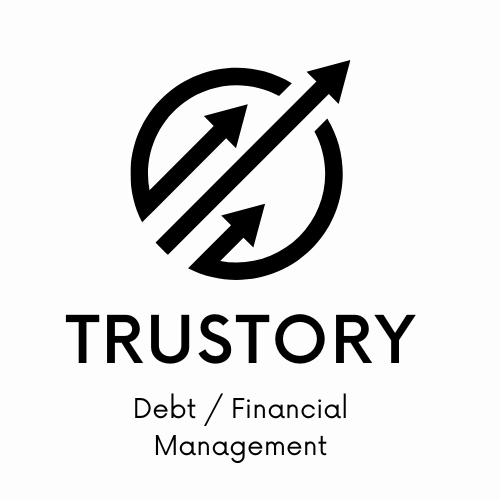
Your Complete Guide to Legal Rights During Debt Review in South Africa
If you're struggling with debt in South Africa, understanding your legal rights during debt review is crucial for protecting yourself and your assets. Debt review, formally known as debt counselling, offers significant legal protections under the National Credit Act (NCA), but many consumers don't fully understand these safeguards. This comprehensive guide will walk you through everything you need to know about your legal rights, how to stop garnishee orders, and what protections you're entitled to throughout the debt review process.
Whether you're considering debt review or already enrolled in the process, knowing your rights can make the difference between financial recovery and continued financial distress. Let's explore the legal framework that protects over-indebted South Africans and how you can leverage these protections effectively.
Understanding Your Fundamental Legal Rights During Debt Review
When you enter debt counselling in South Africa, the National Credit Act grants you immediate legal protections that creditors must respect. These rights are not optional – they are legally enforceable protections designed to give you breathing room while restructuring your debt.
Automatic Legal Protection Upon Application
The moment your debt counsellor issues a Form 17.1 (Application for Debt Review), you receive automatic legal protection. This means creditors cannot take legal action against you, including issuing summons, obtaining judgments, or executing garnishee orders. This protection remains in place throughout the entire debt review process, provided you comply with your restructured payment plan.
Protection Against Harassment and Intimidation
Under debt counselling laws South Africa, creditors and their representatives are prohibited from harassing, intimidating, or using unfair practices to collect debt from consumers under debt review. This includes excessive phone calls, threatening visits to your workplace, or any form of intimidation. If creditors violate these provisions, you have the right to file a complaint with the National Credit Regulator (NCR).
Right to Fair and Affordable Repayment Terms
Your debt counsellor must ensure that your restructured payment plan is both affordable and sustainable. The law requires that your basic living expenses are prioritized, meaning you cannot be forced into a payment arrangement that leaves you unable to meet essential needs like food, shelter, and transportation.
| Legal Right | Description | Duration |
|---|---|---|
| Protection from Legal Action | Creditors cannot obtain judgments or garnishee orders | Throughout debt review process |
| Harassment Protection | Freedom from intimidation and unfair collection practices | Permanent while under debt review |
| Affordable Payment Terms | Payments must be sustainable and fair | For duration of restructured plan |
| Asset Protection | Prevention of asset repossession during compliance | While payments are up to date |
How to Stop Garnishee Orders South Africa: Your Legal Options
One of the most pressing concerns for over-indebted consumers is how to stop garnishee orders South Africa. Fortunately, debt review provides powerful legal mechanisms to halt these orders and protect your income.
Immediate Protection Through Debt Review Application
When you apply for debt review, existing garnishee orders cannot be executed, and new ones cannot be obtained. If you have garnishee orders already deducting from your salary, your debt counsellor can apply to court for their suspension. This process typically involves filing a Section 86(10) application, which asks the court to suspend all legal proceedings while you're under debt review.
Court-Ordered Suspension of Garnishee Orders
Your debt counsellor can request that the Magistrate's Court suspend existing garnishee orders by demonstrating that you're genuinely committed to the debt review process. The court will typically grant this suspension if you can show:
- You've entered debt review in good faith
- You're making regular payments according to your restructured plan
- The garnishee orders would prevent you from meeting your debt review obligations
- Suspension would be in the best interests of all creditors
What Happens If Creditors Ignore Legal Protections
If creditors attempt to proceed with garnishee orders despite your debt review status, they're violating the National Credit Act. You have the right to approach the court for relief and may be entitled to damages. Additionally, the National Credit Regulator can take enforcement action against non-compliant creditors.
Debt Counselling and Credit Score Impact: Understanding Long-Term Effects
Many consumers worry about debt counselling and credit score impact, but understanding the legal framework helps put these concerns in perspective. While debt review does affect your credit profile, the law provides specific protections and pathways to credit rehabilitation.
Credit Bureau Reporting Requirements
Under the National Credit Act, credit bureaus must accurately reflect your debt review status. This means your credit report will show that you're under debt counselling, but it also indicates that you're taking responsible steps to address your financial difficulties. This is generally viewed more favorably by future creditors than defaults, judgments, or bankruptcy.
Legal Right to Credit Rehabilitation
Once you complete your debt review process and receive your clearance certificate, you have the legal right to credit rehabilitation. Credit bureaus must update your status, and the debt review flag must be removed from your credit profile. This legal requirement ensures that your successful completion of debt review doesn't permanently damage your creditworthiness.
Timeline for Credit Score Recovery
While under debt review, your credit score will be affected, but the law ensures that this impact is temporary. Most consumers see significant credit score improvements within 6-12 months after receiving their clearance certificate, provided they maintain good payment behavior.
Building Credit During Debt Review
Although you cannot take on new credit while under debt review, you can take steps to improve your credit profile. Consistently making your restructured payments on time demonstrates responsible financial behavior and can positively influence your credit score once you exit debt review.
What Happens If I Default on Debt Review: Legal Consequences and Solutions
Understanding what happens if I default on debt review is crucial for maintaining your legal protections. The consequences are serious, but the law also provides mechanisms for addressing defaults.
Loss of Legal Protection
If you default on your debt review payments for three consecutive months, your debt counsellor is legally required to issue a termination notice. Once terminated, you lose all legal protections provided by debt review, including protection from garnishee orders and legal action.
Creditor Rights After Default
After debt review termination due to default, creditors regain their full legal rights to:
- Issue summons and obtain judgments
- Apply for garnishee orders
- Repossess secured assets
- List defaults on your credit profile
- Pursue other legal remedies for debt collection
Legal Options for Addressing Defaults
If you're struggling to meet your debt review payments, you have legal options before facing termination. You can approach your debt counsellor to discuss payment holidays, restructuring, or temporary arrangements. The law recognizes that circumstances can change, and reasonable accommodations may be possible.
| Default Scenario | Legal Consequence | Possible Solution |
|---|---|---|
| Temporary Financial Hardship | Potential termination notice | Payment holiday or restructuring |
| Job Loss | Inability to maintain payments | Temporary suspension with new employment |
| Medical Emergency | Missed payments | Documentation for temporary relief |
| Three-Month Default | Automatic termination | Reapplication after addressing issues |
Navigating Debt Counselling Laws South Africa: Your Rights and Responsibilities
Debt counselling laws South Africa create a balanced framework that protects consumers while ensuring creditors receive fair treatment. Understanding both your rights and responsibilities is essential for successful debt review completion.
Consumer Rights Under the National Credit Act
The NCA grants extensive rights to consumers under debt review, including the right to fair treatment, transparent communication, and reasonable payment terms. You also have the right to receive regular statements showing your progress and the right to query any discrepancies in your account.
Legal Responsibilities During Debt Review
While you enjoy significant protections, you also have legal responsibilities. These include making payments as agreed, not taking on new credit without permission, and cooperating with your debt counsellor throughout the process. Failure to meet these responsibilities can result in loss of legal protection.
Enforcement Mechanisms
The National Credit Regulator actively enforces debt counselling laws. If your rights are violated, you can file complaints that result in investigations and potential penalties for non-compliant creditors or debt counsellors. This enforcement mechanism ensures that your legal protections are meaningful and effective.
Your Right to Complain
If you believe your rights have been violated, you have multiple avenues for redress. You can complain to the National Credit Regulator, approach the court for relief, or file complaints with relevant professional bodies. These mechanisms ensure accountability in the debt review process.
Maximizing Your Legal Protection: Best Practices and Recommendations
To fully benefit from your legal rights during debt review, it's essential to understand how to maximize these protections while fulfilling your obligations under the process.
Documentation and Record Keeping
Maintain detailed records of all payments, correspondence, and interactions related to your debt review. This documentation can be crucial if creditors attempt to violate your legal protections or if disputes arise about payment history.
Communication with Creditors
While your debt counsellor handles most creditor communication, understanding your rights helps you respond appropriately if creditors contact you directly. You have the right to refer them to your debt counsellor and to refuse to discuss payment arrangements outside the debt review process.
Staying Compliant to Maintain Protection
Your legal protections depend on compliance with your debt review agreement. Prioritize your debt review payments, communicate proactively with your debt counsellor about any difficulties, and avoid taking on new credit that could jeopardize your protected status.
Understanding and exercising your legal rights during debt review is fundamental to achieving financial rehabilitation in South Africa. The National Credit Act provides robust protections for over-indebted consumers, but these protections only work when you understand and properly utilize them. By staying informed about your rights, maintaining compliance with your obligations, and working closely with qualified debt counsellors, you can navigate the debt review process successfully and achieve lasting financial freedom.
Remember, your legal rights during debt review are designed to give you a genuine opportunity for financial recovery. Take advantage of these protections, fulfill your responsibilities, and work toward the financial fresh start that debt review can provide. Contact Trustory.xyz today to learn more about how debt review can protect your legal and financial interests.
